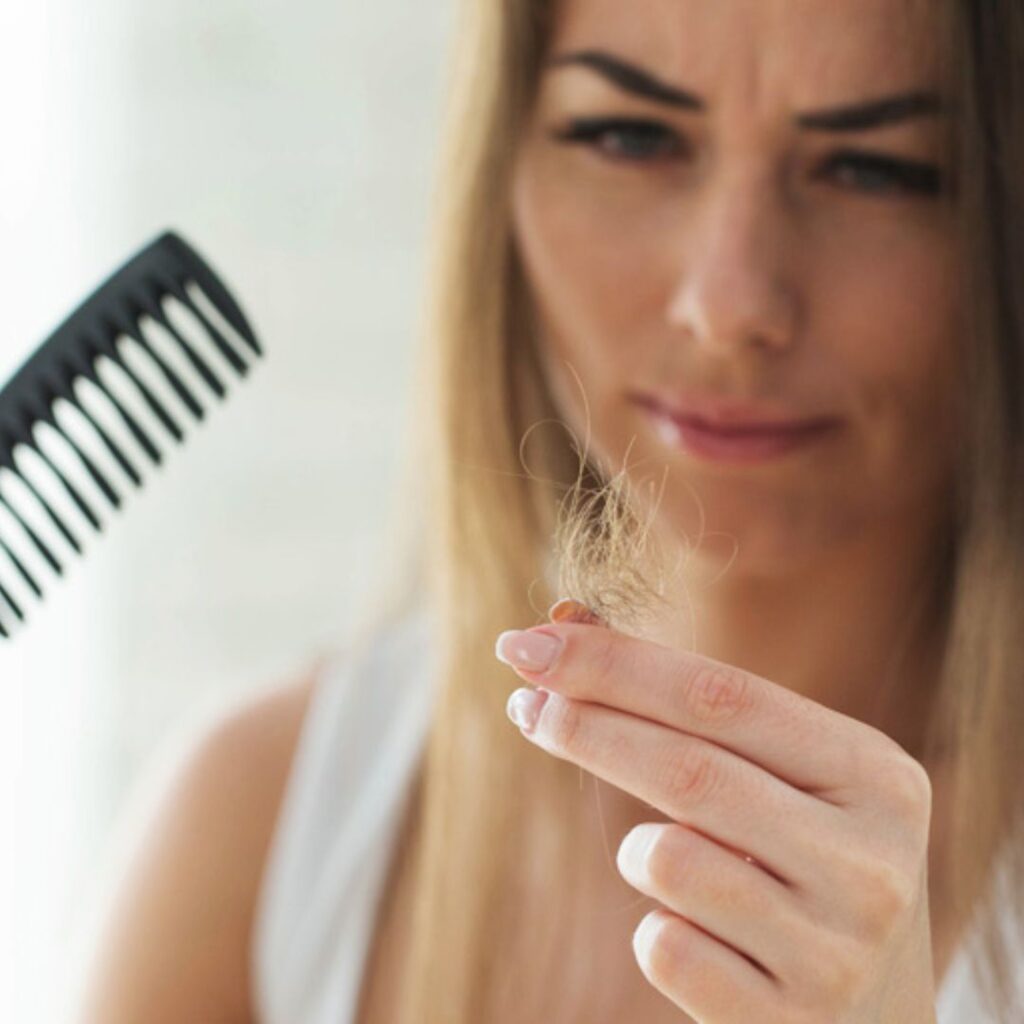Stress-induced hair Loss, also known as telogen effluvium, occurs when the body undergoes physical or emotional strain, disrupting the natural growth cycle of hair. Fortunately, this condition is usually temporary, and with the right approach, regaining healthy hair is very much possible.
Consulting a Dermatologist in Roorkee or a Skin Specialist in Roorkee can help you understand the root cause of your hair loss and guide you with personalized treatments.
Understanding Stress-Induced Hair Loss
Hair goes through three main phases: growth (anagen), rest (catagen), and shedding (telogen). When you experience prolonged stress, your body may push more hair follicles into the resting phase, causing noticeable shedding a few weeks or months later. This condition is commonly reversible, but it requires timely care.
Stress can be triggered by multiple factors such as:
- Emotional challenges (anxiety, grief, overwork)
- Physical stress (illness, surgery, weight loss)
- Lifestyle disruptions (poor sleep, irregular diet)
When stress is the main culprit, addressing it effectively is the first step toward regaining hair.
Practical Steps to Regain Hair After Stress
Here are some strategies that can help restore your hair health:
1. Focus on Stress Management
The root cause of the problem needs attention first. Incorporate relaxation techniques into your daily routine, such as:
- Yoga and meditation for calming the mind
- Breathing exercises to reduce cortisol levels
- Regular physical activity to release endorphins
By lowering stress levels, you not only support hair growth but also improve your overall health.
2. Nourish Your Hair from Within
Diet plays a major role in hair regrowth. Nutritional deficiencies can worsen stress-related hair loss. Ensure your meals are rich in:
- Protein: Eggs, fish, and lentils to strengthen hair strands
- Iron: Spinach, beans, and lean meats to improve follicle oxygen supply
- Biotin and Zinc: Nuts, seeds, and whole grains for healthier growth
- Omega-3 fatty acids: Flaxseeds and walnuts for scalp nourishment
A Skin Specialist in Roorkee can recommend supplements if your diet alone does not meet these nutritional needs.
3. Gentle Hair Care Routine
Avoid adding more stress to your hair through harsh styling or chemical treatments. Instead:
- Use mild shampoos free of sulfates and parabens
- Avoid excessive heat styling and tight hairstyles
- Oil your hair gently with coconut or argan oil for better scalp circulation
Keeping your scalp healthy creates the right environment for regrowth.
4. Medical Treatments and Therapies
In some cases, lifestyle changes may not be enough, and professional guidance becomes essential. A Dermatologist in Roorkee may suggest:
- Minoxidil topical application: To stimulate hair follicles
- PRP therapy (Platelet-Rich Plasma): Using your own blood plasma to boost follicle activity
- Laser therapy: To enhance blood circulation in the scalp
- Medications or supplements: Based on underlying deficiencies
These treatments are personalized depending on the severity of hair loss and individual health conditions.
5. Prioritize Sleep and Hydration
Stress often disrupts sleep cycles, which further worsens hair fall. Aim for at least 7–8 hours of quality sleep each night. Staying hydrated also supports circulation and nutrient transport to your scalp, creating favorable conditions for regrowth.
6. Seek Professional Guidance Early
The earlier you address hair loss, the easier it is to reverse. Consulting a Skin Specialist in Roorkee helps in ruling out other causes such as thyroid imbalances, anemia, or hormonal issues that may mimic stress-related shedding. Early intervention ensures you receive a tailored treatment plan instead of experimenting with temporary fixes.
Emotional Well-being Matters Too
Hair loss itself can become a source of anxiety, creating a vicious cycle of stress. Acknowledging this emotional impact is important. Support from family, counseling, or stress-relief hobbies can make recovery smoother. Remember, hair regrowth takes time—usually three to six months after stress reduction—and patience is key.
Final Thoughts
Regaining hair lost due to stress is absolutely possible with the right approach. By focusing on stress management, nutrition, gentle care, and professional treatments, you can restore hair health naturally and effectively. If you’re struggling with persistent hair fall, consulting a Dermatologist in Roorkee or a Skin Specialist in Roorkee can give you the right direction and medical support.
Healthy hair growth is not just about external treatments—it begins with a balanced mind, body, and lifestyle. By addressing stress and adopting these practices, you can look forward to stronger, healthier, and more confident hair.

